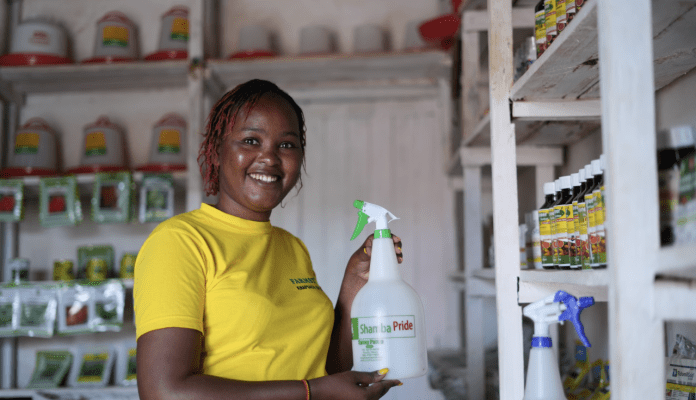Kenya’s entrepreneurial landscape has earned a reputation as one of the most dynamic in Africa, with its startups pioneering solutions in fintech, healthtech, agritech, and beyond.
At the heart of this growth is Boost Africa, a joint initiative of the African Development Bank (AfDB) and the European Investment Bank (EIB), designed to catalyze early-stage venture capital across the continent.
Since its deployment in 2020, Boost Africa, through its team of experts, has been at the forefront of supporting Kenya’s startups’ growth by providing both financial and non-financial support to venture capital funds and their portfolio companies.
To better understand the program’s impact on Kenya’s startups, Bizna Kenya Team spoke with Astou Dia, Boost Africa Lead–Kenya, who has been instrumental in delivering technical assistance and capacity-building to high-potential startups across the region with an aim of ensuring their long-term sustainability.
Tackling Entrepreneurial Challenges
Like many ecosystems, Kenya’s startup scene faces hurdles. According to Boost Africa’s findings, most Kenyan enterprises are mostly hit by limited access to early-stage risk capital, particularly capital suited for long-term growth cycles.
However, there is still a need to change many entrepreneurs’ mindsets regarding equity investment. There is a typical example of how African entrepreneurs like holding on to 100% of their business even if it’s not worth that much as opposed to ceding some ownership percentage by bringing in partners like private equity funds. They fear losing control of the business thus missing out on alternative financing as well as tapping into a wider network of professionals with global insights that can help them scale up operationally.
Many startups also struggle with talent acquisition, managerial and operational gaps, and governance and compliance structures. Boost Africa has responded by creating tailored interventions through its technical assistance programme. Through the Boost Africa Investment Envelope of EUR 2 million, both private equity funds and entrepreneurs are benefiting from the capacity building support.
Non-financial support has been a cornerstone of the program. Startups have benefited from mentoring, bespoke technical assistance in strategy and operations, ESG and financial management guidance, regional expansion, PR support, and access to global training. Notably, Boost Africa has partnered with Oxford’s Saïd Business School to provide custom venture capital training for African fund managers entailing peer to peer discussions on how best to attract more private investment into Africa.
How EIB is fueling Kenya’s private sector growth through Private Equity and Venture Capital
How Boost Africa Works
Boost Africa’s mission is to catalyse early-stage venture capital investment in Africa, building a strong pipeline of innovative SMEs, creating high-impact jobs, and unlocking private sector capital.
The initiative works indirectly through the venture capital funds it supports, which then invest in high-growth potential startups. It also supports fund managers to strengthen their strategies, governance, ESG systems, and fundraising capabilities.
“In Kenya, we work with funds like Seedstars Ventures, TLcom, Atlantica, and AfricInvest. Our role is to help startups build operational capacity, refine governance and ESG systems, and become investor-ready. At the same time, we support fund managers in strengthening their strategies, governance, and fundraising capabilities,” Dia explained.
Boost Africa has zeroed in on technology-enabled ventures across high-growth sectors. Its priorities include fintech, logistics and supply chain, ICT, edtech, healthtech, and agritech.
Startups that stand out for the support are those with a clear value proposition and market fit, strong, committed founding team, potential for scale and cross-border growth, and those open to mentorship and capacity-building and aligned with ESG and impact principles.
The selection of the enterprises is also based on a needs assessment and alignment with eligibility criteria, which include being legally incorporated and operating in Sub-Saharan Africa, with at least one branch in the region.
“Requests for support goes through a formal process: self-assessment by the beneficiary and the fund manager, review of the assessment, EIB approval, and deployment of expert consultants,” Dia explains.
Impact on the ground
Through Boost Africa, EIB has invested around €78 million, which in turn has helped leverage €382 million in new investment from both public and private sectors as of 2024. Additionally, the programme has delivered more than 70 technical assistance assignments across Africa.
Among the direct beneficiaries of the initiative are Shamba Pride, a tech-enabled agribusiness platform connecting more than 80,000 farmers and 4,000 agro-dealers.
Seedstars Africa Ventures, under the Boost Africa Initiative, provided them with an initial cheque of EUR 430,000, along with strategic advisory, helping them scale operations.
Another is Poa Internet, which is delivering low-cost broadband in peri-urban and semi-rural communities. In a 2024 impact study, 62 percent of its users were newly connected to home Wi-Fi, and 70 percent of low-income households accessed internet via Poa.
The Boost Africa support has also transformed Turaco, a microinsurance for underserved populations, through financial and non-financial support. The firm aims to insure one billion people worldwide, aiming to double global insurance coverage and shield more people from financial shocks.
More broadly, start-ups supported under Boost Africa have created thousands of new jobs in Kenya. The combined trust of EIB-backed financing, the Boost Africa initiative, and partnerships with venture capital funds is creating multi-sectoral levers of growth.
This includes expanding access to credit for women, youth, and SMEs, and developing digital infrastructure and inclusive services that appear likely to increase productivity and income for historically marginalised communities.
As the current phase of Boost Africa nears its end, demand for its services is rising. The EIB is now exploring avenues to expand support for high-growth enterprises in Kenya and across Africa.










